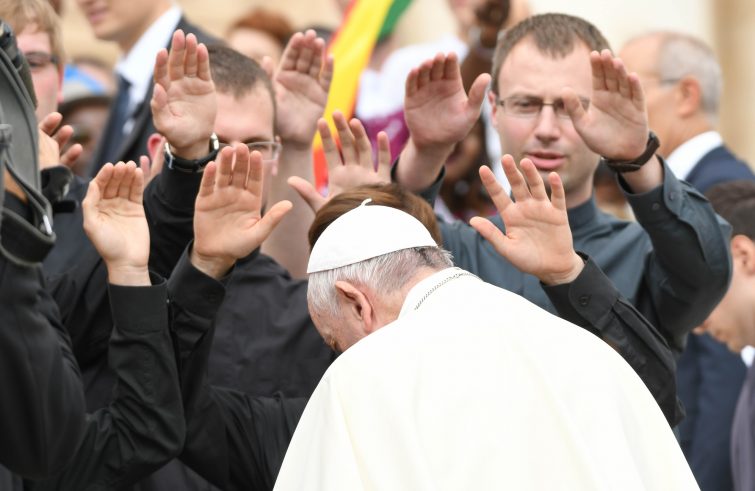
“Priestly celibacy is not, and has never been, a dogma. It is an ecclesiastical discipline of the Latin Church that represents a precious gift, as all the recent Pontiffs have affirmed”. Andrea Tornielli, editorial director of the Holy See’s Dicastery for Communications, wrote this in an editorial published in Vatican News about the release of a book on the priesthood – whose pre-publication material was provided by Le Figaro – that bears the signatures of Pope Emeritus Joseph Ratzinger and of Card. Robert Sarah, Prefect of the Congregation for Divine Worship. “The Catholic Eastern-Rite Churches – Tornielli pointed out regarding priestly celibacy – allow the possibility of ordaining married men as priests. Exceptions have also been admitted in the Latin Church by Benedict XVI himself in the Apostolic Constitution ‘Anglicanorum coetibus’, dedicated to Anglican priests who seek communion with the Catholic Church, which provides for ‘the admission of married men to the order of presbyter on a case by case basis, according to objective criteria approved by the Holy See’”. Pope Francis, too, Tornielli went on to say, “has also expressed himself several times on the subject. While yet a Cardinal, in the book conversation with Rabbi Abraham Skorka, he explained that he was in favour of maintaining celibacy: ‘with all the pros and cons entailed, in ten centuries there have been more positive experiences than there have been errors. Tradition has a weight and validity’”. In dialogue with journalists on the flight back from Panama last January, the Pope recalled that in the Eastern Catholic Churches the option of either celibacy or marriage before the diaconate is possible; but he added, regarding the Latin Church: “I am reminded of that phrase of Saint Paul VI: ‘I would rather give my life than change the law on celibacy’. It came to mind and I want to say it, because it is a courageous phrase, in a more difficult moment than this, 1968/1970… Personally, I think that celibacy is a gift for the Church. Second, I don’t agree with allowing optional celibacy, no’”. In his reply, he also spoke about the discussion among theologians about the possibility of granting exemptions for some remote regions, such as the Pacific islands. He specified, however, “there’s no decision on my part. My decision is: optional celibacy before the diaconate, no. That’s something for me, something personal, I won’t do it, this remains clear. Am I ‘closed’? Maybe. But I don’t want to appear before God with this decision”.
“The Synod on the Amazon was held in October 2019, and the topic was debated there”, Tornielli went on to explain: “As can be seen from the final document, there were bishops who asked for the possibility of ordaining married permanent deacons as priests”. “It is striking, however, that on 26 October, in his concluding speech, the Pope, after having followed all the stages of the speeches and discussion in the hall, did not mention in any way the subject of the ordination of married men, not even in passing”, the editorial director remarked. In that same speech, the Pontiff “spoke about creativity in new ministries, and the role of women; and referring to the scarcity of clergy in certain mission areas, he recalled that there are many priests from a certain country who have gone to the first world, for example, the United States and Europe, and ‘there are not enough of them to send them out to the Amazon region of that same country’”. Finally, it is significant that Pope Francis, while thanking the media, also asked a favour of them on that occasion: “that in their dissemination of the Final Document, they would focus above all on the diagnosis ‘which is the more significant part, the part in which the Synod truly expressed itself best’: cultural diagnosis, social diagnosis, pastoral diagnosis and ecological diagnosis”. The Pope then invited them not to fall into the danger of focusing on “which party won and which one lost when looking at what was decided concerning disciplinary issues”.
